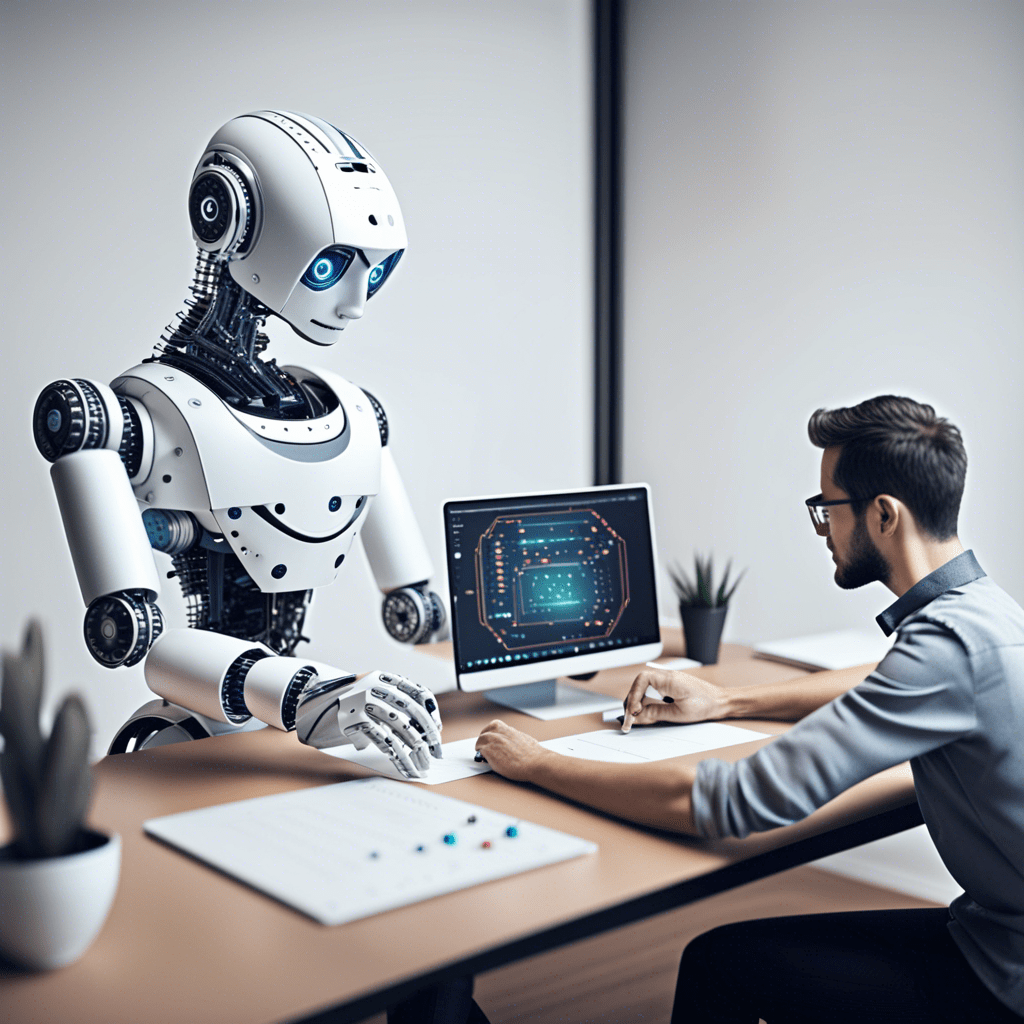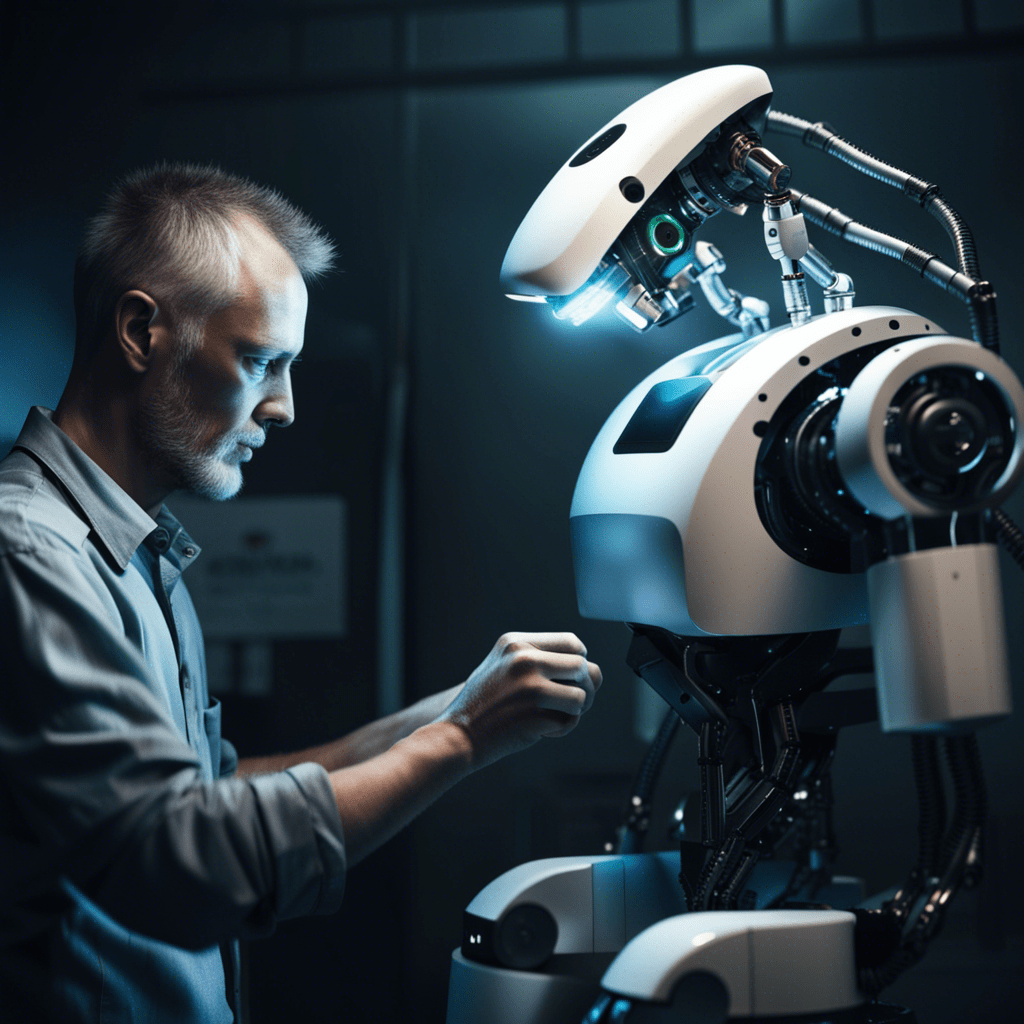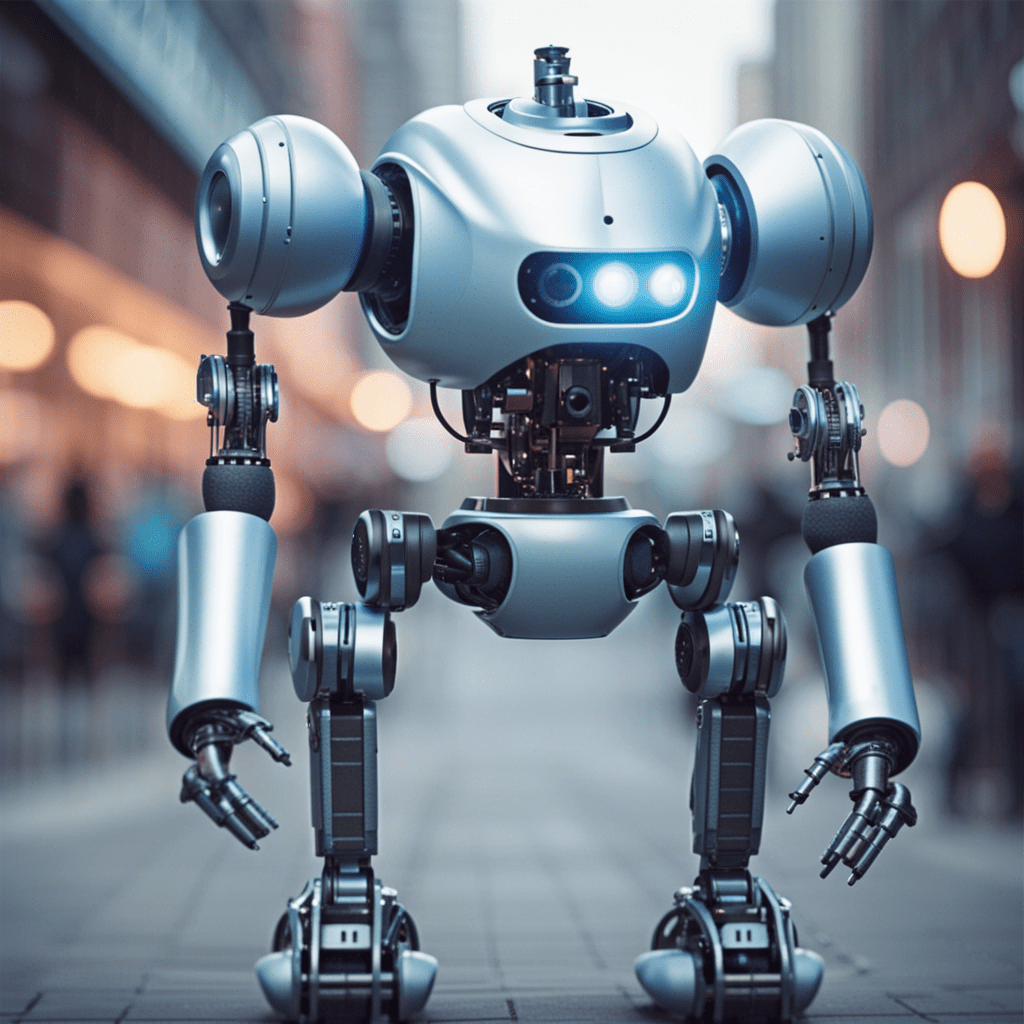- Home
- Content Marketing
- How We Designed a World-Class AI-Powered Content Tool

Generative AI is revolutionizing the way we work by providing innovative solutions in various industries. This technology, powered by advanced algorithms and machine learning, has the potential to transform our work environments, streamline processes, and enhance productivity. In this article, we will explore the impact of generative AI on different sectors and discuss the opportunities and challenges it brings.
I. Understanding Generative AI:
1. What is Generative AI?
Generative AI refers to a branch of artificial intelligence that focuses on generating content, such as images, texts, or music, using algorithms and data inputs. It involves training models to understand patterns and generate new content based on those patterns.
2. How does Generative AI work?
Generative AI uses neural networks and deep learning techniques to analyze and learn from large datasets. These networks consist of multiple layers that process data sequentially, allowing them to recognize patterns and generate new content based on those patterns.
3. Benefits of Generative AI:
- Creativity Boost: By generating new and unique content, generative AI can inspire and enhance creativity in fields like art, music, and design.
- Automation Efficiency: Generative AI automates tasks by generating content according to preset rules or parameters, reducing the need for manual labor.
- Personalized Experiences: Generative AI can tailor user experiences by analyzing preferences and generating content that matches individual requirements.
II. Generative AI in Different Industries:
1. Healthcare Industry:
Generative AI has the potential to revolutionize healthcare by assisting in disease diagnosis, drug discovery, and patient care. For instance, AI algorithms can analyze medical images and generate accurate diagnoses, saving time for both doctors and patients. Additionally, generative AI can aid in the development of personalized treatment plans based on patient data.
2. Marketing and Advertising:
Generative AI is reshaping the marketing and advertising landscape by enabling businesses to create personalized and engaging content at scale. AI-powered systems can analyze customer data and preferences, generating targeted advertisements and marketing strategies. This helps businesses optimize their campaigns, increase customer engagement, and improve overall marketing ROI.
3. Manufacturing Sector:
Generative AI is transforming the manufacturing sector through automated design optimization. By learning from previous models, AI algorithms can generate optimal designs for components and structures, improving efficiency and reducing material waste. This technology can also assist in predictive maintenance by analyzing sensor data and generating alerts for potential equipment failures.
4. Creative Industries:
Generative AI is becoming an indispensable tool for creatives in fields such as art, music, and design. AI algorithms can generate unique artwork, compose original music pieces, and even create immersive virtual reality experiences. Artists can leverage generative AI to explore new possibilities, break creative boundaries, and bring forth innovative creations.
III. Challenges and Ethical Considerations:
1. Data Bias:
Generative AI heavily relies on the datasets used for training. If these datasets are biased or limited in diversity, the generated content may perpetuate societal biases. Ethical considerations must be taken into account to ensure a fair and inclusive application of generative AI.
2. Intellectual Property:
The ownership and copyright of content generated by AI algorithms are still debatable. Establishing clear guidelines and regulations to address this issue is essential to avoid potential copyright infringements and disputes.
3. Privacy and Security:
Generative AI necessitates vast amounts of data to generate meaningful content. Safeguarding this data and ensuring user privacy is crucial. Stringent security measures must be implemented to protect sensitive information and prevent unauthorized access.
Helps address linguistic limitation
Conclusion:
Generative AI is revolutionizing the way we work across various industries, offering unprecedented opportunities to streamline processes, enhance creativity, and improve efficiency. From healthcare to marketing and manufacturing, this technology is reshaping traditional approaches and enabling organizations to achieve new levels of productivity. However, the ethical considerations, such as data bias and privacy concerns, must be addressed to ensure a responsible and inclusive implementation of generative AI. As we embrace this technology, it is vital to strike a balance between innovation, efficiency, and ethics to harness its full potential.









